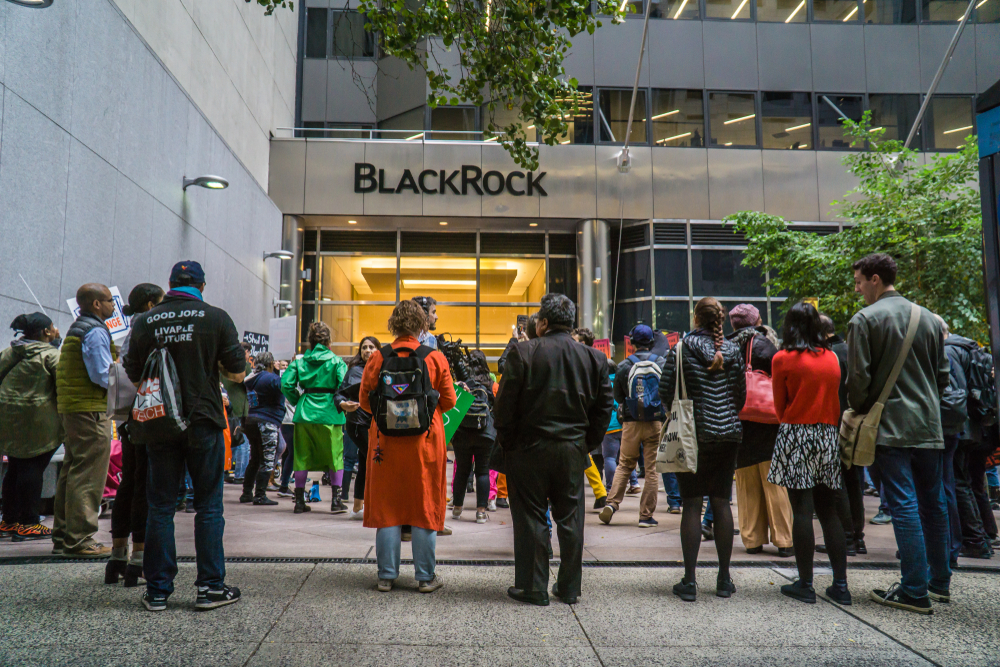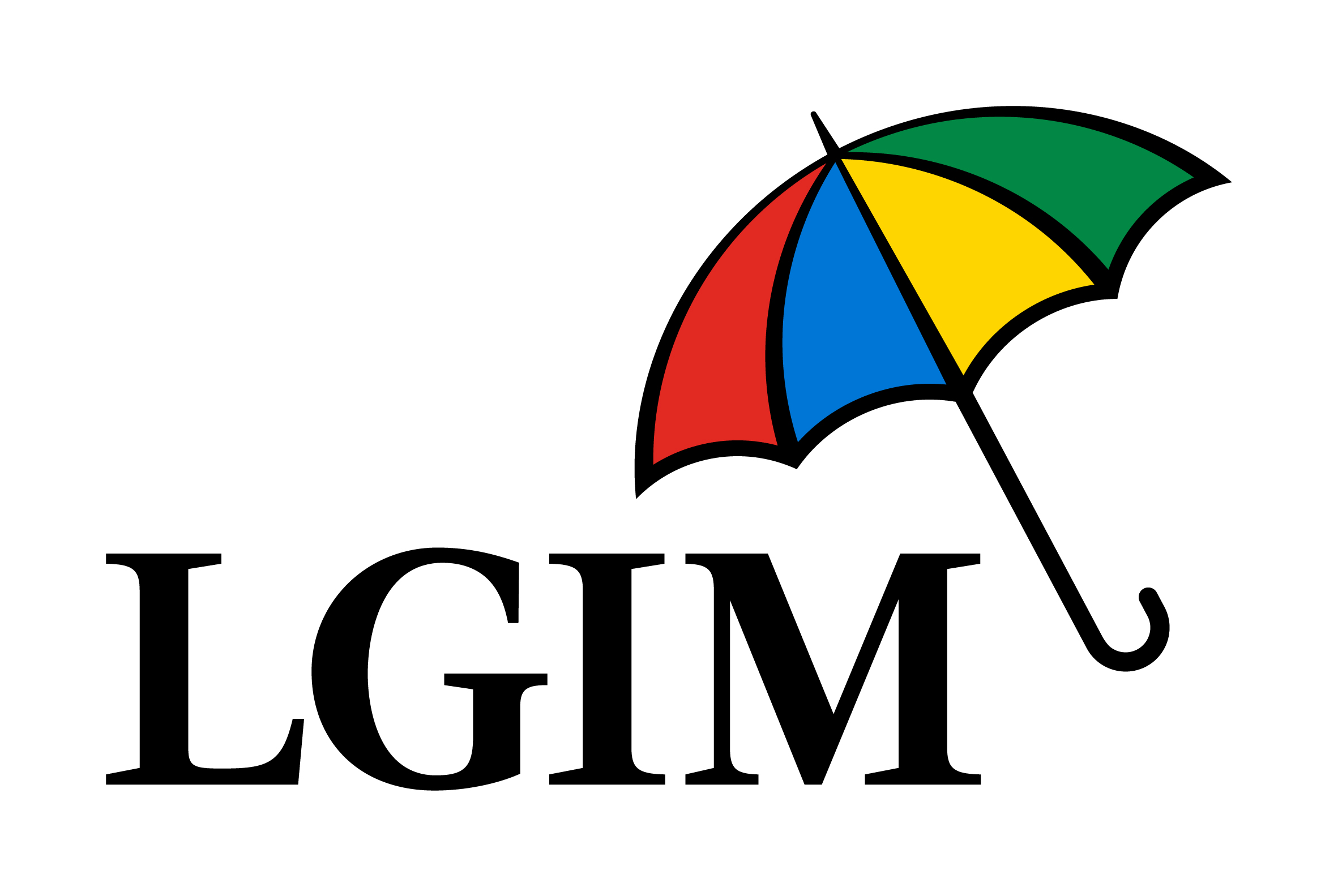This article first appeared in ETF Insider. To read the full edition, click here.
Of the many controversies that have raged through this year’s long US election campaign, one of the most curious is the row over ‘woke capitalism’.
With BlackRock, Vanguard and State Street now controlling up to 20% of shares in many US-listed companies – BlackRock’s assets under management has surged to an all-time high of $11.5trn – the capacity of the ‘Big Three’ fund managers to cast influence over corporate governance has come under increasingly intense scrutiny from both left and right.
Larry Fink’s seeming embrace in recent annual letters of BlackRock’s ability to drive a sustainability agenda has encouraged liberals and dismayed many conservatives, generating somewhat comical accusations that one of Wall Street’s most formidable operators has morphed into some kind of tree hugger.
As the storm has gathered BlackRock and its peers have backed fewer ESG proposals over the past couple of years. And all three are ramping up investment in pass-through voting, a fast-evolving voting technology that that promises to expose company shares held within funds to shareholder influence.
Making ‘popular capitalism’ popular
As well as relieving the big funds of the increasingly vexed responsibility of casting votes on behalf of shareholders, the innovation promises to advance the elusive ideal of ‘popular capitalism’.
Visions of mass share ownership have continually surfaced since the 1980s, when the Reagan administration promoted employee enrolment in 401(k) pension savings schemes powered by equities, and the Thatcher governments rolled out a privatisation programme that encouraged many UK citizens to acquire shares in former public companies such as BT and British Gas.
Through the 1980s and 90s the number of British shareholders rose from three million to nine million – about 15% of the population – and by 2021 11 million owned stocks and shares ISAs, with two million managing their own pensions through SIPPs.
The pension auto-enrolment framework introduced that year increased the number of workplace pension holders from 46% to 80%, making most UK workers share owners overnight, whether they were aware of it or not. But though share ownership has widened, its nature has changed, making it tougher for investors to exercise influence over the companies in which they hold a stake.
Five decades ago, more than half of UK shares were held by individuals, who had opportunities to have their say – through regular communications with executives and attendance at general meetings – that present day holders have lost or have never had. Today little more than 10% of UK shares are individually owned and investors are handing their money to an ever-narrower set of funds.
BlackRock, Vanguard and State Street now control 80% of all the assets under management in the US and one third of all assets managed worldwide. Around 100 asset managers are entrusted with the oversight of about a third of the world’s invested capital.
As the financial commentator Merryn Somerset Webb puts it in her book, Share Power, we now have ‘managerial rather than shareholder capitalism’. The digital investment platforms through which most of us hold our shares present another intermediary between investors and companies.
Platforms pass on dividends and capital gains but retain technical ownership of the shares they hold. Before their entanglement in the culture wars the big funds, assisted by proxy voting agencies, had been very ready to assert their capacity to hold companies to account on behalf of shareholders.
There is also something to be said for the argument that concentration of power in the biggest institutions gives them the clout to hold today’s giant corporations to account that individual shareholders struggle to summon. But breakthroughs in pass-through voting technology are opening the opportunity to pass substantial responsibility for voting onto shareholders themselves.
Voting developments
Voter choice app developer Tumelo, for example, one of the field’s pacesetters, allows investors to access resolutions for any of their funds’ portfolio companies as soon as they become available and to view detailed reports on the votes placed.
Investors can vote on proposals at companies to which they have the greatest exposure or select from a range of voting policies.
Somerset Webb’s book cites a case study implemented by Tumelo and fund managers Legal & General Investment Management (LGIM) as heralding a new future for shareholder engagement. Some 50,000 investors were invited to access lists of the companies they hold via their funds through the LGIM website, where they were able to see resolutions coming up for those companies, review arguments for both sides, see how LGIM and other investors were intending to vote, cast their own vote and see the result.
BlackRock’s Voting Choice initiative employs a similar framework to open up more than 650 global funds totalling $2.6trn in equity assets, nearly half of all the index equity assets the company holds under management.
Last month State Street opened its first European ETF for voting choice. Vanguard’s pilot programme, launched last year, allows investors in five funds to participate in proxy voting on company proposals, offering options to abstain, vote with an ESG focus, vote alongside the company’s board, or allow Vanguard to vote on their behalf.
These and other uses of new technology, such as the post-pandemic convention of hosting AGMs online and initiatives such as Primary Bid that make it easier for retail investors to participate in IPOs, may finally be creating the conditions for realisation of Milton Friedman’s purist vision of a ‘shareholder democracy’ in which engaged shareholders hold companies to account without the intervention of other stakeholders.
Power and responsibility
Maybe, but only if investors themselves show themselves willing to take the opportunity.
Analysis of Vanguard’s pilot programme found that of the 45,000 shareholders who voted 45% were content for the fund manager to vote their shares, with a quarter voting to support ESG shareholder proposals, and a third accepting the recommendations of company boards.
Most revealing, though, only 2% of the two million individual investors invited to participate chose to do so. Take-up has also been slow at BlackRock, the company’s figures showing that investors holding less than a quarter of the assets available for Voting Choice have taken advantage of the initiative.
That is worrying for fund managers, leaving them in the political firing line as they continue to make delicate judgements as to how to exercise voting rights on behalf of millions of shareholders. Also, perhaps, for private investors.
A meaningful extension of shareholder voting would serve as a powerful safeguard against political interventions that would dilute their rights: from conservatives, sanctions on funds pursuing ESG agendas; from the left, changes to corporate governance promoting the rights of stakeholders beyond those holding shares.
New technologies like pass-through voting hold out the shimmering prospect of true shareholder democracy. But with power comes responsibility - that of taking an interest in company affairs and casting a vote.
Time will tell whether the ideal has ever been anything other than a mirage, of more concern to market purists than shareholders themselves.
Justin Reynolds is a freelance journalist and editor of The Patient Investor blog






